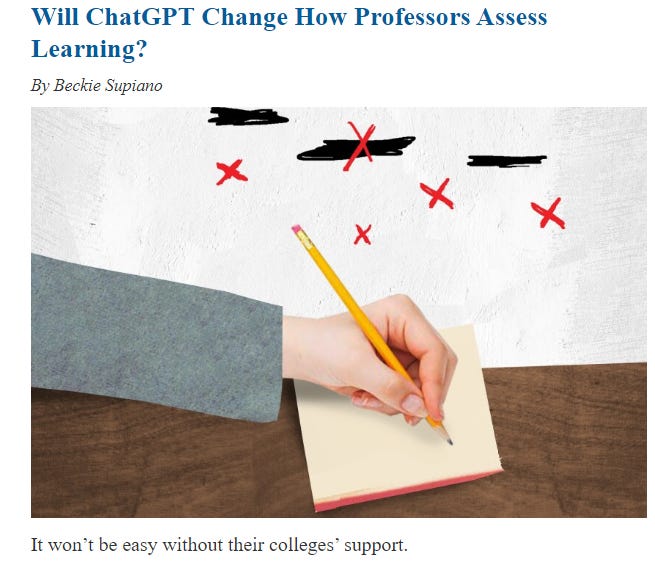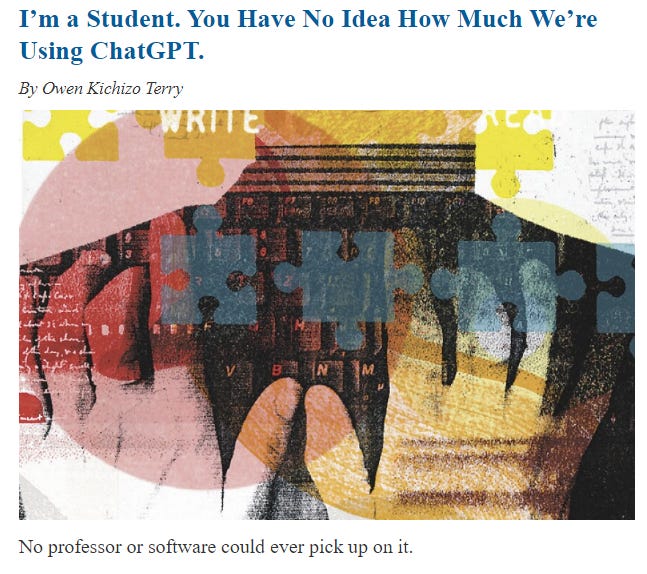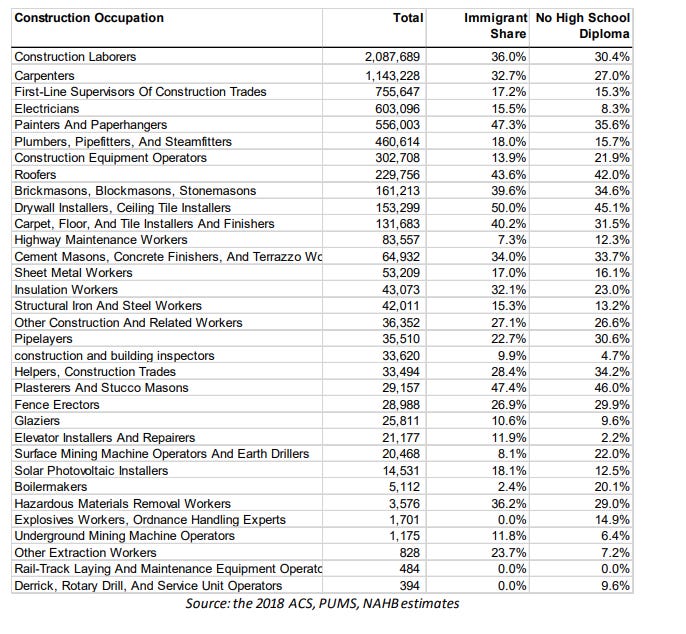I know, I know, every time I get onto the Zoom Doom thing with the Chronicle for Higher Education, the entire experience is dirty beyong dirty. Today, it was more bizarro people yammering about “talent search challenges for getting people to go into higher education.”

Three women went into their experiences recruiting and screening potential college hire-ons. The language coming from these people belies the vapidity of our times. Now, well, one woman said, “we have 30 people applying for one job, compared to a few years ago when 300 applied for one job.” I almost puked.
This entire “thing” was all about HR-speak, and the shallowness of their conversation and the Dystopian proposals they lay out are just signs of the shifting baseline disorder times.
They are happy about hybrid work, about kicking down the useless 9 to 5 timeframe for work, and are happy that work can be done at home, 8 am to 8 pm, or later, if need be.
Then, two males came on, and they are the Linked-In creeps, which sponsors these talks. Microsoft, now, owns Linked-In. Linked-In does staffing/hiring now, and alas, many of the universities and colleges are using hiring and staffing services like Linked-In to do the real work of hiring and screening.
One of the fops stated that colleges are way behind the times, technologically, and that getting courses and admin work on line, in hyper-remote ways, is the only way forward. You know, these monsters who believe the bricks and mortar campuses are just dinosaurs.
Yikes, here it is: The Talent Crisis in Higher Education

This is just one of a million types of superficial and back ass wards thinking, or unthinking comments:
Online schools are mushrooming everywhere these days, and it’s not that hard anymore to tell the genuine ones from the diploma mills. A number of online institutions have established strong brand names and reputations for themselves, and even with traditional brick and mortar big guns like MIT jumping on the online education bandwagon, it stands to reason that place-based higher education is losing the importance and prestige it once held.
The death of brick and mortar colleges will likely be long, slow, and painful, but here are ten reasons why we should consider speeding up the process and abolishing them right now:They’re way too expensive for most people.
Yeah, so throw the baby out with the bathwater:

[The German phrase] had its first written occurrence in Thomas Murner’s (1475-1537) versified satirical book Narrenbeschwörung (1512), which contains as its eighty-first short chapter entitled “Das kindt mit dem bad vß schitten” (To throw the baby out with the bath water) a treatise on fools who by trying to rid themselves of a bad thing succeed in destroying whatever good there was as well. In seventy-six rhymed lines the proverbial phrase is repeated three times as a folkloric leitmotif, and there is also the first illustration of the expression as a woodcut depicting quite literally a woman who is pouring her baby out with the bath water […].
Instead of stepping back, reforming, retrofitting, stopping the lunacy of capitalism eating everything, including those babies in the bathwater, we have these creeps, lowly ones, middlings, who have bought into the Fortune Magazine lies of — “we have to just accelerate AI-AR-VR-CGI-Twinning-Robotics since the cat’s out of the bag, and we will just have to deal witht he negative consquences of a Dystopian, anti-human, anti-community world.”
Well, they don’t quite say it that way, but you read my last Substack, so enjoy these liars: You Never Can Pick Your Poison in Capitalism
This is how “THEY” think:

Or, they go to France and talk about their Power with Twitter: Fucking double dose of creepy.

Ahh, it’s just given, like gravity, or the H and O times two in Water. The billionaires are stupid but gods,

Ahh, so this is how the disrupters work, and that Chronicle Zoom Doom just shows how co-opted these HR and Hiring Creeps and the Admin Class are. Well, let’s see. Hmm, face to face, bricks and mortar and using typewriters, no phones and tablets and laptops allowed, I can teach a shit load of great things, outside and in the community with paper and pencil:

This is a foregone conclusion, no? Death of education, death of ethics, death of philosophy, death of families, death of agency, death of freedoms and rights, but we can lie, steal, plagiarize and pollute.
No need to read between the lines with this student’s arrogance and self-importance. He’s lying too, since he pushes the supposed step by step process of ChatGPT (fucking another polluted term in our language) helping him with a paper. Ahh, it is plagiarizing, for sure, and, bam, the arrogance. Not that college teachers do not need huge kicks in the butt, and the liberal arts, well, major lashes to the butt. But that’s not the point here:
Look at any student academic-integrity policy, and you’ll find the same message: Submit work that reflects your own thinking or face discipline. A year ago, this was just about the most common-sense rule on Earth. Today, it’s laughably naïve.
There’s a remarkable disconnect between how professors and administrators think students use generative AI on written work and how we actually use it. Many assume that if an essay is written with the help of ChatGPT, there will be some sort of evidence — it will have a distinctive “voice,” it won’t make very complex arguments, or it will be written in a way that AI-detection programs will pick up on. Those are dangerous misconceptions. In reality, it’s very easy to use AI to do the lion’s share of the thinking while still submitting work that looks like your own. Once that becomes clear, it follows that massive structural change will be needed if our colleges are going to keep training students to think critically.
The common fear among teachers is that AI is actually writing our essays for us, but that isn’t what happens. You can hand ChatGPT a prompt and ask it for a finished product, but you’ll probably get an essay with a very general claim, middle-school-level sentence structure, and half as many words as you wanted. The more effective, and increasingly popular, strategy is to have the AI walk you through the writing process step by step. You tell the algorithm what your topic is and ask for a central claim, then have it give you an outline to argue this claim. Depending on the topic, you might even be able to have it write each paragraph the outline calls for, one by one, then rewrite them yourself to make them flow better.
As an example, I told ChatGPT, “I have to write a 6-page close reading of the Iliad. Give me some options for very specific thesis statements.” (Just about every first-year student at my university has to write a paper resembling this one.) Here is one of its suggestions: “The gods in the Iliad are not just capricious beings who interfere in human affairs for their own amusement but also mirror the moral dilemmas and conflicts that the mortals face.” It also listed nine other ideas, any one of which I would have felt comfortable arguing. Already, a major chunk of the thinking had been done for me. As any former student knows, one of the main challenges of writing an essay is just thinking through the subject matter and coming up with a strong, debatable claim. With one snap of the fingers and almost zero brain activity, I suddenly had one. (source)
Ahh, now, Homer, the gods, the entire poem, now how do teachers teach it and shepherd thinkers across all disciplines to look at the work? Oral fucking poems, man, and so, the hard work is getting bricks and mortar colleges to get under the skin of this concept: Homer’s Iliad chronicles the ten year siege of Troy, and Odyssey chronicles one man’s ten year attempt to return home after Troy.
Ahh, war, war mongers, battles, existential battles, what does heroism and tragedy mean in today’s world? What do we miss as modern readers of an oral poem? What sort of elements of modern history tie into Homer’s works? You can’t return home, or can you, and what is home in an atomized, broken, capitalistic, denuding, neutering/spaying society? You get the picture.

So, I was outside with the cable guy. Man in his thirties, and we talked about fiber optics, and I watched him install fiber (thin as a human hair) and splicing it to the current five line telephone line so we can have faster modems and more junk and stuff coming down the pipeline.
He looks like a rugged Val Kilmer, and he is from Albuquerque, having moved out here when he was 20 after his father died of cancer and Hep C, after getting a blood transfusion after a saw accident. “They didn’t screen blood back then, so he got Hep C, and liver damage and liver cancer.”
Dead at 58, and so the mom and young son moved to Yachats, of all places.
The work he does is with both copper and fiber optics. I watched the machine, the splicing, the ins and outs of the process. The machine, splicer, is computerized, fragile to the rain out here. We were talking about what happened fiber optic wise after Puerto Rico’s hurricane that the systems — phone, communication — were devastated and my Val Kilmer said spicers — fiber optics splicers, people — were getting $80 a splice, not an hour. Some of the independent contractors were splicing lines at 300 a day. Imagine that bill, imagine that.
“Look at me, with no college education. I like this job, and, the rain is worth it, and while I miss New Mexico’s food, I am happy with the scenery here.”
Alas, I asked about a son or daughter, and he stated he and his wife have a son, five, diagnosed with Autism, and while he’s getting more verbal in the schema of things and he’s sort of getting a few more social skills/cues, there is a daily trial and tribulation tied to getting the boy into some form to meet the fucker up neural normal world.
[Photos: Puerto Rico before the stupid USA’s Trump brought paper towels.]


In the midst of an active hurricane season, Puerto Rico has suffered yet again. Thanks to Fiona, which crashed into the territory a few days before Ian hit Florida, we were without critical services like electricity, water, hospitals and fuel supplies. Fiona’s destruction was a sharp reminder of the life-threatening effects of Hurricane Maria, which caused $90 billion in damage five years ago. More than 30 people died because of Fiona and as we recover from yet another destructive hurricane, our leaders have ignored the planning and preparedness lessons made clear by Maria.
After Maria, the U.S. federal and Puerto Rico local governments promised an increased level of resilience by strengthening existing infrastructures following the usual central-planning approach and solutions. But Hurricane Fiona has been yet another reminder that our strategy to build resilience in Puerto Rico is wrong, and that the leaders who espouse it are making decisions based on a philosophy that centers on the wrong things. They are rebuilding 20th-century electric grids, and water, sanitation and other infrastructure as they were before Maria hit; this will not work. Private companies cannot be relied on to provide resilient infrastructures. Rethinking how we approach planning and preparedness will make the archipelago a more viable place that benefits Puerto Rican people without straining budgets. (source)
Ahh, the privateers, the merchants of death, the merchants of debt, private companies, and then, what, $80 for each fiber optic splice? This is fucking lunacy.

And, so, colleges are shooting themselves in the foot, hand, neck, head, brain, and this country of unlimited and blank check to the UkroNaziLandians and now for more and more $$$ to the merchants of death CEOs and offensive weapons and gear and etc. and more satellite and softare and computing war gear, we are not getting the homes fixed or built.

Ahh, these pencil necks, these Linked-In do nothings, rad digital and on-line gods, know nothing about the world:
Despite the slowing of immigration inflow to the U.S., the share of foreign-born workers in the US construction labor force has been rising since the housing recovery began. Immigrant workers now account for close to one in four workers, a record high share that was reached for the first time in 2016. The story behind the rising share of immigrants in the construction labor force during the housing recovery is twofold – an unusually slow, delayed and reluctant return of native-born workers and a much faster and robust comeback of immigrant workers. Close to 1.7 million native-born workers left the construction labor force during the housing downturn, and the vast majority on a net basis, over 1 million, had not returned to the industry as of 2018. In sharp contrast, the number of immigrant workers in construction has now returned to the 2006 level.
The share of immigrants is even higher in construction trades, reaching 30%. Concentration of immigrants is particularly high in some of the trades needed to build a home, like carpenters, painters, drywall/ceiling tile installers, brick masons, and construction laborers – trades that require less formal education but consistently register some of the highest labor shortages in the NAHB/Wells Fargo Housing Market Index (HMI) surveys and NAHB Remodeling Market Index (RMI).
In some states, reliance on foreign-born labor is even more pronounced. Immigrants comprise close to 40% of the construction workforce in California and Texas. In Florida, New Jersey and New York, close to 37% of the construction labor force is foreign-born and in Nevada, one out of three construction industry workers come from abroad. (source)
Notice the verbiage — jobs that “require less formal education.” What does that mean? Formal education equates to what, college, trade school, apprenticeships?
So, my Val Kilmer cable guy from New Mexico said he started off young thinking he’d be the next YouTube star, and then he tried working on cellular phones, and even the call centers, but he is happy now with Pioneer Cable.
From the 2010 Virginia Festival of the Book in Charlottesville, Virginia, Matthew Crawford discussed his book, Shop Class as Soulcraft: An Inquiry Into the Value of Work.

The satisfactions of manifesting oneself concretely in the world through manual competence have been known to make a man quiet and easy. They seem to relieve him of the felt need to offer chattering interpretations of himself to vindicate his worth. He can simply point: the building stands, the car now runs, the lights are on. Boasting is what a boy does, because he has no real effect in the world. But the tradesman must reckon with the infallible judgment of reality, where one’s failures or shortcomings cannot be interpreted away. His well-founded pride is far from the gratuitous “self-esteem” that educators would impart to students, as though by magic.
— Matthew B. Crawford, Shop Class as Soulcraft: An Inquiry Into the Value of Work
I suppose it all boils down to the masters controlling destinies, and no matter how powerful the urge is to be Matthew and have a motorcycle shop, we are in a Brave New World where the billionaires and the Fourth Industrial Revolutionaires and WEF-ers, want control, man, control. Here, from Matthew Ehret’s latest: “Roosevelt vs. Keynes’ New Deal and the Battle of Bretton Woods” Believe it or not, this piece ties into indirectly how we are being shaped by perverse people, whose roots go back. Contrast Keynes and Churchill with FDR.
Galton’s eccentric, sceptical, observing, flashing, cavalry-leader type of mind led him eventually to become the founder of the most important, significant and, I would add, genuine branch of sociology which exists, namely eugenics.
-John Maynard Keynes on Galton’s Eugenics, Eugenics Review, 1946
I do not agree that the dog in a manger has the final right to the manger even though he may have lain there for a very long time. I do not admit that right. I do not admit for instance, that a great wrong has been done to the Red Indians of America or the black people of Australia. I do not admit that a wrong has been done to these people by the fact that a stronger race, a higher-grade race, a more worldly wise race to put it that way, has come in and taken their place.
– Winston Churchill to the Peel Commission, 1937
There never has been, there isn’t now, and there never will be, any race of people fit to serve as masters over their fellow men… We believe that any nationality, no matter how small, has the inherent right to its own nationhood.
– Franklin Delano Roosevelt, March 1941
They who seek to establish systems of government based on the regimentation of all human beings by a handful of individual rulers call this a new order. It is not new and it is not order.
– Franklin Roosevelt
This content originally appeared on Dissident Voice and was authored by Paul Haeder.
Paul Haeder | Radio Free (2023-05-17T13:40:50+00:00) Who Ya Gonna Get to Hammer Nails and Wire up your Internet?. Retrieved from https://www.radiofree.org/2023/05/17/who-ya-gonna-get-to-hammer-nails-and-wire-up-your-internet/
Please log in to upload a file.
There are no updates yet.
Click the Upload button above to add an update.